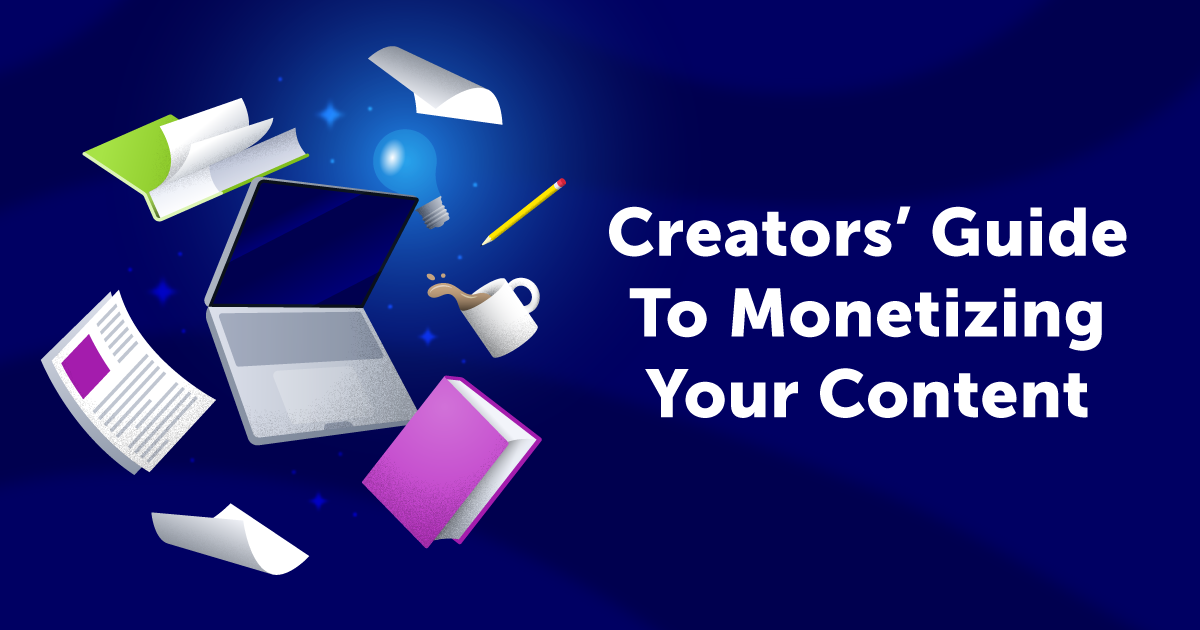A seismic shift underway: AI search and AI agents are eating the internet — or at least how it’s monetized. When AI gives people direct answers without clicks, the traditional ad revenue via traffic model collapses. So how can content creators adapt and thrive?
Here’s a detailed exploration of emerging monetization models for content creators in the AI-first world, beyond the blog-click economy:
🔁 1. Licensing Content to LLM Platforms (Content-as-a-Service)
Think: Getty Images, but for text and ideas.
As LLMs increasingly rely on high-quality data, they’ll need clean, curated, and reliable content sources.
-
Monetization Model: Syndication or licensing deals with LLMs, aggregators, and AI agents (e.g., “premium source feeds”).
-
Opportunity: Creators can form content collectives and negotiate licensing to LLM companies (OpenAI, Anthropic, Google, etc.).
🎯 2. Hyper-Personalized Content for High-Value Clients
Custom research, briefings, ghostwriting, or AI prompt libraries.
-
For consultants, authors, CEOs, thought leaders who need made-for-them content and are willing to pay.
-
Example: A political influencer pays $5,000/month for a daily AI brief built off your annotated research.
🧠 3. "Embedded Creator" Inside AI Agents
Imagine a popular creator’s “voice” or persona integrated into agents.
-
Monetize as a personality layer or knowledge flavor.
-
Example: A travel blogger becomes the default voice of a travel AI — and gets royalties per use.
-
This is like selling your “character” to a virtual agent platform.
📹 4. Video (and Audio) Thrives — But Needs Reinvention
Yes, video becomes even more defensible, especially when:
-
It’s deeply personal or human (vlogs, explainer videos with personality).
-
It integrates AI agents — e.g., interactive video content, AI-powered Q&A overlays.
-
Live + human = authentic = harder to clone.
-
YouTube channels might embed mini GPT agents trained on past content to keep fans engaged.
📬 5. Premium Community Subscriptions with AI Add-ons
Substack, Patreon, and Discord grow stronger, especially when combined with LLMs.
-
Give your community its own custom-trained GPT bot based on your writing, podcasts, or articles.
-
Add layers: Q&A, workshops, AMAs — powered by you and AI clones of you.
🛠 6. Productized Knowledge
Turn content into tools:
-
Notion templates, GPT prompt packs, calculators, dashboards, quizzes, micro-courses.
-
Example: A productivity blogger creates a $99 AI-powered daily planner and prompt set.
🧾 7. Interactive Content + Microtransactions
AI agents can deliver interactive, modular content experiences.
-
Think “choose your own adventure” stories or interactive essays.
-
Monetized by $1/$5 interactions, digital collectibles, or NFT-linked stories.
🎙 8. Voice Licensing + Audio Clones
If you have a popular podcast or distinctive voice, license a synthetic voice model of yourself.
-
Used in AI assistants, ads, or narration.
-
Royalty per use.
📚 9. AI-First Courses + Coaching
-
Offer GPT-enhanced courses where learners talk to an assistant trained on your method.
-
Combine it with one-on-one coaching or cohort-based workshops.
-
You don’t just sell knowledge—you sell the experience of interacting with you and your AI twin.
🧬 10. DNA of Your Work — Monetized via API or GPT Plugin
Turn your content into a structured knowledge base with an API or ChatGPT Plugin.
-
Users subscribe or pay per query.
-
Think: a climate science writer builds a GPT plugin to answer complex climate questions with their insights.
BONUS: Emerging Platforms & Tech to Watch
-
LangChain-powered knowledge bots
-
AI-native podcast platforms (e.g., where each episode has an LLM companion)
-
Custom GPT marketplaces
-
LLM-native blogging platforms (e.g., Netizen.page with built-in agent support)
📌 Conclusion
The new content monetization economy won’t be about pageviews or traffic — it will be about relationship, voice, trust, and tools. Creators who combine their unique perspective with LLM-enhanced delivery systems will win.
AI Agents and the Future of Ad‑Revenue Businesses
Will AI replace “Finance Bros”?
Disrupting the Bloomberg Terminal: The AI Analysts Are Here
BNPL and Systemic Risk: Could “Buy Now, Pay Later” Trigger a 2008-Style Debt Crisis?
Stablecoins: The Future of Crossborder Finance
Velocity Money: Crypto, Karma, and the End of Traditional Economics
Emerging Monetization Models For Content Creators In The AI-First World 🧵👇
— Paramendra Kumar Bhagat (@paramendra) June 3, 2025










